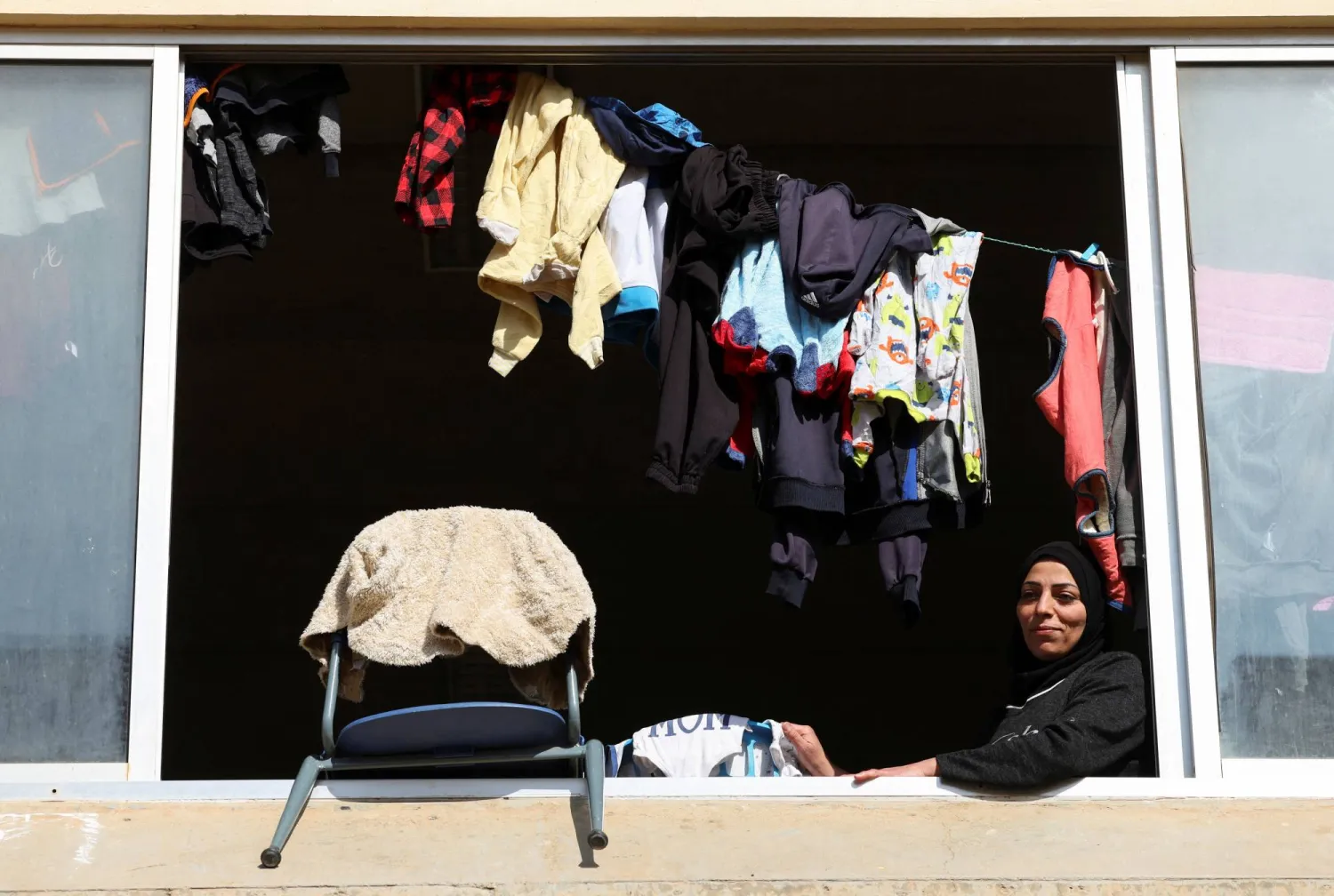Nerjes Hassan was so worried her children would fall ill from bathing in the frigid water of a displacement shelter in northeast Lebanon that she drove back into her hometown to give them a hot bath and pick up food preserves.
While at home on Wednesday morning in the town of Buday, near the eastern city of Baalbek, an Israeli air strike killed her, her husband and her two children, according to her coworkers and neighbors.
Hassan, who worked for the Lebanese Organization for Studies and Training (LOST) aid organization, was among thousands seeking refuge from Israeli strikes in the mountainous Christian town of Deir al-Ahmar in eastern Lebanon.
The town was already hosting more than 10,000 displaced people before Israel escalated its strikes on predominantly Shi'ite Muslim Baalbek and nearby towns starting on Wednesday this week.
Thousands more are flowing into Deir al-Ahmar as Israel's bombardment continues. The needs are growing, temperatures are dropping, and supplies in the town are getting tight.
In one school now serving as a shelter, aid groups that once served two meals have cut breakfast to feed more at lunch. Townspeople have put together donation drives for winter clothes and blankets but are facing shortages, leaving displaced sharing blankets overnight.
"If we flee the bombing, are we meant to die of cold?" said Suzanne Qassem, a mother of two at one displacement center, whose home in Buday had been destroyed.
"I'm sick, I've been taking medicine for a week and I'm still coughing... If my son gets sick, am I going to be able to get him medicine?"
'LIKE A SIEGE'
Temperatures in Deir al-Ahmar are dropping to 6 degrees Celsius (43 degrees Fahrenheit) overnight even before winter fully sets in and the schools have no diesel to run central heating systems.
"At night, we're shaking. I put my mattress up next to my daughter and tell her to hug me so that we can keep warm. But we're not keeping warm," said Neyfe Mazloum, 69.
Most families fled with just the clothes on their backs, rushing out of their homes after Israeli evacuation warnings for Baalbek and surrounding towns on Wednesday and Thursday.
More than 1.2 million people have been displaced by Israeli strikes on Lebanon over the last year in its campaign against militant group Hezbollah. That includes nearly 190,000 who have sought refuge in shelters. Others are staying with relatives, have rented out homes, or are sleeping in the streets.
Lebanon's crisis management cell says that out of 1,130 accredited shelters, 948 have reached maximum capacity. Most of the displaced are in the districts of Mount Lebanon and Beirut - easy to reach for most aid organizations.
But Deir al-Ahmar is much further afield.
The quickest routes run through the massive area that the Israeli military says must evacuate. To avoid it, aid groups planning to deliver supplies this week will travel further north through mountain peaks before cutting back down to the town.
Imran Riza, the United Nations humanitarian coordinator for Lebanon, told Reuters that aid deliveries to the Baalbek region had to be postponed this week due to Israeli air strikes. Other deliveries of medical aid to Lebanon from foreign countries have been delayed due to strikes near the airport.
"Access is becoming more and more difficult. The needs are growing in Deir al-Ahmar. It's up to us to try to get there, and to plan a way to be able to access it in a way that is reasonably safe," he said.
Local volunteers are worried that the looming winter will cut off the only safe route into Deir al-Ahmar, leaving them stranded.
"That road will close with the first snow. It will be like a siege," said Khodr Zeaiter, a volunteer with LOST. Displaced himself, he is now helping to organize aid in Deir al-Ahmar.
Beyond the immediate concerns of food and fuel, Zeaiter is worried about the education ministry's directive that public schools - now hosting displaced - will need to reopen for students in three weeks.
Volunteers are studying the possibility of refurbishing an abandoned school to host morning and evening classes, he said.
"We're grateful to the people of Deir al-Ahmar so much. It's their solidarity that has gotten us through this. But how long that will last - who knows."
In East Lebanon, Looming Winter Hints at Stretched Aid Response

A displaced woman looks out from a window at a school turned into a shelter housing displaced people who fled from Baalbek and surrounding areas, in the mountainous Christian town of Deir al-Ahmar in eastern Lebanon October 31, 2024. REUTERS/Mohamed Azakir

In East Lebanon, Looming Winter Hints at Stretched Aid Response

A displaced woman looks out from a window at a school turned into a shelter housing displaced people who fled from Baalbek and surrounding areas, in the mountainous Christian town of Deir al-Ahmar in eastern Lebanon October 31, 2024. REUTERS/Mohamed Azakir
لم تشترك بعد
انشئ حساباً خاصاً بك لتحصل على أخبار مخصصة لك ولتتمتع بخاصية حفظ المقالات وتتلقى نشراتنا البريدية المتنوعة







